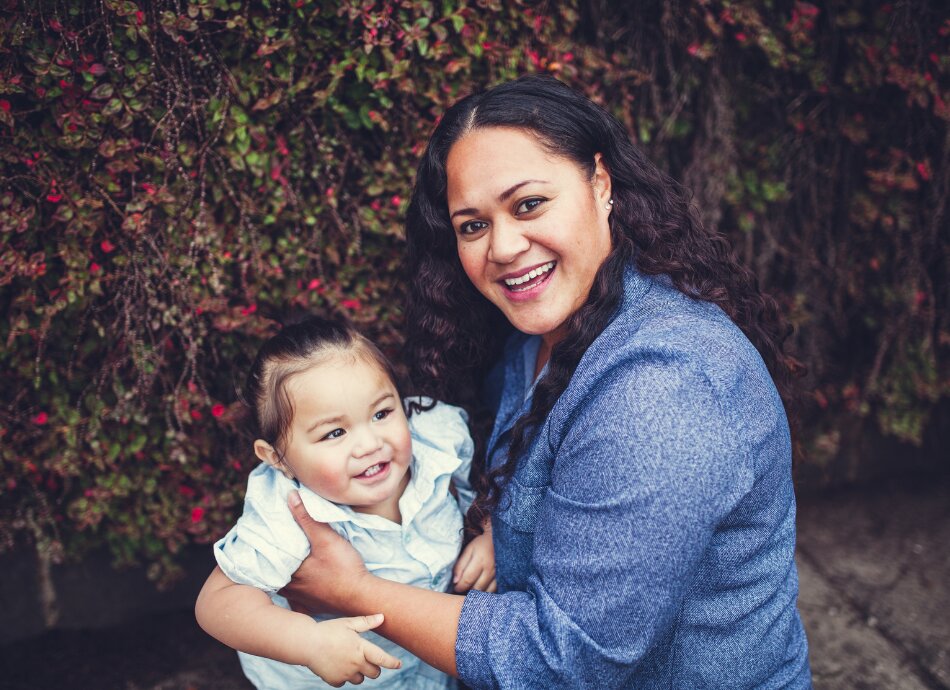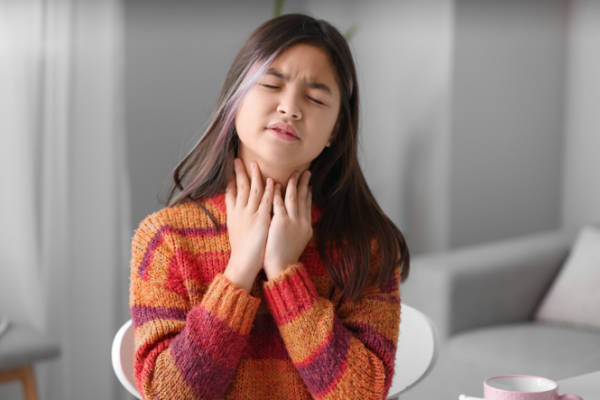You can now add Healthify as a preferred source on Google. Click here to see us when you search Google.
Sore throat in children
Key points about sore throat in children
- Most sore throats are caused by viruses and need no treatment other than pain relief.
- Sometimes children can get strep throat (Group A streptococcus bacteria).
- A rare complication of strep throat is rheumatic fever which can cause permanent heart damage.
- Māori and Pasifika tamariki should see a healthcare provider in the first 1 to 2 days of any sore throat.
- The content on this page comes from KidsHealth(external link).

Sore throats are common in children. Causes can include:
- infection by viruses – the most common cause
- infection by Group A streptococcus bacteria (strep throat) – a less common cause.
Less frequently, glandular fever (Epstein Barr virus)(external link) can cause a sore throat, enlarged glands in the neck, fever and tiredness, particularly in teenagers and young adults. Glandular fever is diagnosed with a blood test.
Can COVID-19 also cause a sore throat?
Yes. If your child has a sore throat, call Healthline in Aotearoa New Zealand (for free) on 0800 611 116. They will give you advice about what to do.
If your Māori or Pasifika child or teen has a sore throat, please also talk to a healthcare provider. Your child may need 2 swabs – a COVID-19 swab and a throat swab for strep throat. That's because in Aotearoa New Zealand, Māori and Pasifika tamariki are at greatest risk of developing complications from strep throat. Your child may need 10 days of antibiotics for a suspected strep throat to prevent rheumatic fever.
Children at risk of getting a sore throat
Sore throats caused by viruses are common in all tamariki. Strep throat is more common in school-age tamariki. Strep throats are rare in children under 3.
In Aotearoa New Zealand, Māori and Pasifika tamariki are at greatest risk of developing complications from strep throat.
In at-risk people, untreated strep throat can lead to rheumatic fever.
Video: Checking sore throats to prevent rheumatic fever
Video: Rheumatic fever informative video
(Stop Sore Throats Hurting Hearts, NZ, 2016)
Video: Rheumatic fever
Rheumatic fever is a serious illness that affects the valves of the heart. It mainly affects children (5 to 19 years of age) after a group A streptococcal (GAS) infection (which usually causes a sore throat). Hear more from Dr Nigel Wilson, Paediatric Cardiologist.
(Morningside Productions Ltd, NZ, 2012)
It's very difficult to tell the difference between a viral sore throat and strep throat.
Māori and Pasifika children and teenagers
If your Māori or Pasifika child or teen has any sore throat, please take them to a healthcare provider or school clinic for a throat swab. Your child may need 10 days of antibiotics for a suspected strep throat to prevent rheumatic fever.
Keep your child away from school or early childhood centres for at least 24 hours after they start antibiotics, to reduce the risk of spreading the strep bacteria.
All children
If your child with a sore throat is not Māori or Pasifika, they have a low risk of developing rheumatic fever. Sore throats are usually viral. Most tamariki with a sore throat don't need any tests.
You should see a healthcare provider urgently if your child has:
- drooling (dribbling)
- difficulty breathing
- a new skin rash or bruising
- extreme tiredness or drowsiness
- possibly choked on a foreign object or swallowed a toxic substance.
You should see a healthcare provider if your child:
- has symptoms that are not improving after 48 hours
- hasn't been drinking well for more than 24 hours, or you're worried about dehydration
- has great difficulty swallowing
- has increased snoring when asleep, or periods of stopping breathing when asleep
- has tender lumps in the neck that are getting bigger.
Infections caused by viruses can't be treated with antibiotics. The body will clear out the virus on its own without treatment.
If your child needs to take antibiotics for a strep throat, make sure they take all the doses for 10 days – even if their symptoms have improved. Your child can return to school or day care 24 hours after they start antibiotics.
Pain relief can help any sore throat. It will help your child eat and drink. You can relieve pain in the following ways:
- Paracetamol (you must follow the dosage instructions on the bottle; it is dangerous to give more than the recommended dose) or use our paracetamol dose calculator.
- Gargling with warm salt water (1 teaspoon of salt per glass of water).
- Throat sprays can help but stop using them if your child doesn’t like them.
- Sucking on lozenges can help by increasing saliva production but don't give them to young children because of the risk of choking.
- Drinking warm liquids – honey or lemon is a common way of providing relief.
- Cool liquids and ice blocks.
If your child has glandular fever (Epstein Barr virus)(external link), they shouldn't take antibiotics because antibiotics don't work against viral infections. In fact, some types of antibiotics, especially amoxycillin, can cause a rash in tamariki with glandular fever.

Image credit: Canva
Rheumatic fever te kirikā rūmātiki(external link) Health New Zealand | Te Whatu Ora, NZ
Resources
Pū Manawa | Rheumatic Fever Network Aotearoa(external link) Pū Manawa has lots of resources to help parents and whānau of tamariki affected by rheumatic fever. They share information on ways whānau can live well and look after each other.
Clinical guidelines and resources
A guide for GAS sore throat management(external link) Heart Foundation, NZ, 2019
Management of recurrent treated GAS sore throats(external link) Heart Foundation, NZ, 2019
Antibiotic guide – choices for common infections(external link) BPAC, NZ, 2023
Management of recurrent group A streptococcal (GAS) positive sore throats in children and adolescents at high risk of rheumatic fever(external link) Ministry of Health, NZ & Heart Foundation, NZ, 2019
NZ guidelines for rheumatic fever – group A streptococcal sore throat management guidelines 2019 update(external link) Heart Foundation, NZ, 2019
Summary of key changes in the group A streptococcal sore throat management guideline 2019 update(external link) Heart Foundation, NZ, 2019
Sore throat algorithm(external link) Heart Foundation, NZ, 2019
Guide for household sore throat management(external link) Heart Foundation, NZ, 2019
Rheumatic fever in Māori – what can we do better?(external link) BPAC, NZ, 2011
Credits: Content shared between HealthInfo Canterbury, KidsHealth and Healthify He Puna Waiora as part of a National Health Content Hub Collaborative.
Last reviewed:





